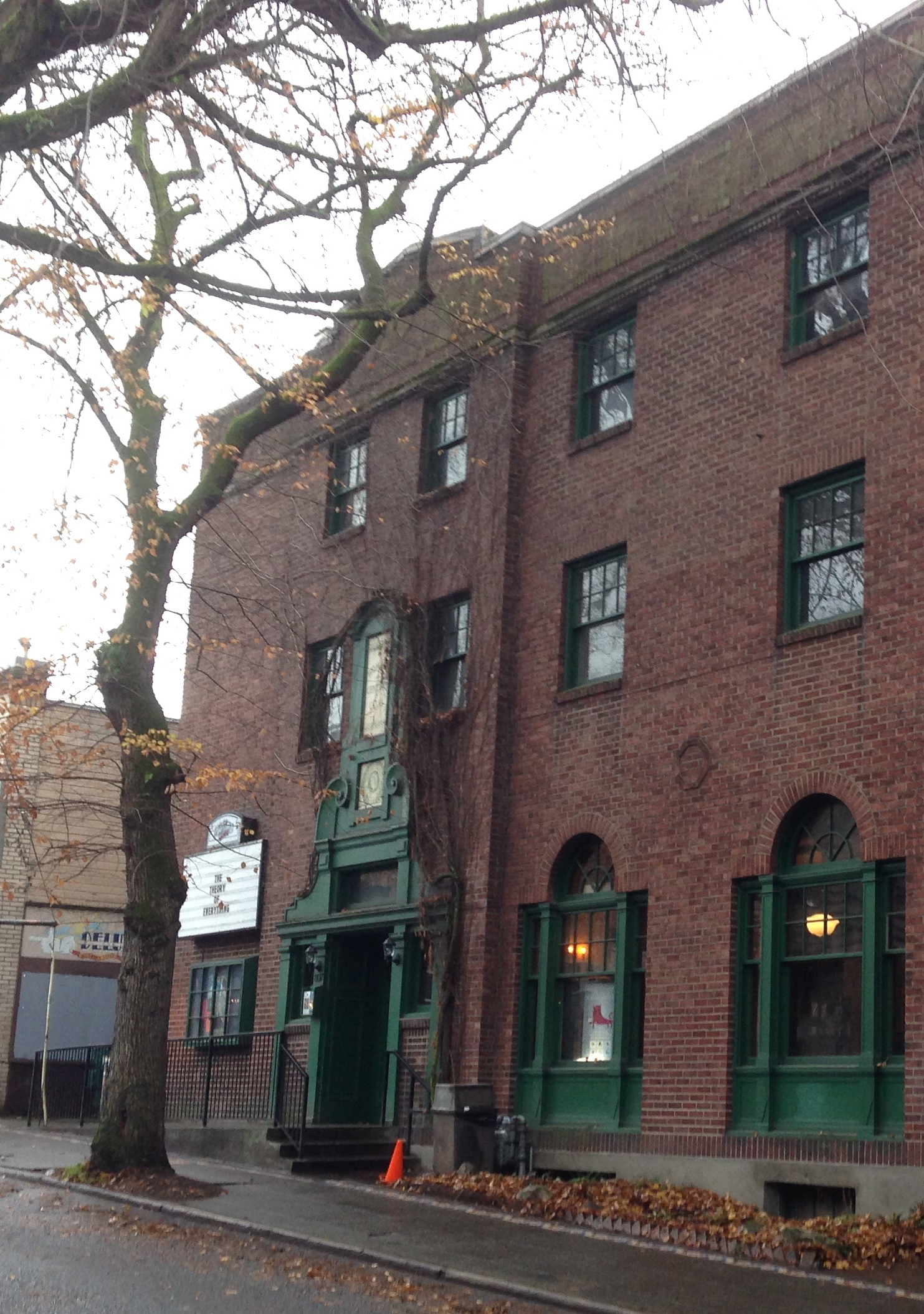I have written this story several times before, which says something about the state of the indie/art-house movie biz. As first reported by Capitol Hill Seattle Blog last week, the Harvard Exit’s landlord plans to sell the building to Scott Shapiro, developer of Melrose Market and owner of the property that currently houses Chop Suey (also headed toward closure).
Movies will cease in mid-January, ending a 46-year history for a beloved institution that often topped our Best of Seattle reader polls. Screenings began there in 1968, and the theater has been operated since 1979 by what is now Landmark Theatres—the same L.A. company that surrendered its lease on the Egyptian last year (since reopened by SIFF). Landmark previously operated the Broadway Market Cinemas from 1988 to 2002. It gave up the lease to the Metro (now Sundance) in 2012 and the Neptune (now a music venue) in 2010. Do you sense a pattern here? And the company is relinquishing the lease to the underperforming Varsity Theatre at the end of this month; a different operator may or may not keep it running. (Landmark still has the Crest, Seven Gables, and Guild 45th, where it owns the actual land beneath.)
Landmark’s woes go way back. It’s been through several sales and a bankruptcy. Dallas billionare Mark Cuban currently controls the small national exhibition chain. He tried to sell it in 2011, but found no takers. Obviously Cuban could put money into nicer seats and concessions if he wanted to. He could pay higher rents when landlords raise them; but that’s evidently not the business model being pursued here.
Instead, the new industry model for grown-up art-house movies seems to be amenities, food, and booze. Paul Allen just spent another small fortune upgrading the Cinerama again. Sundance and the Big Picture likewise offer fewer, nicer seats and a premium menu. At a lower price point, Central Cinema, Cinebarre, and even SIFF have embraced the booze-and-view trend. Unless you’re a teenager at the mall, going out to movies can increasingly seem like an evening at the theater, plus dinner, with comparable damage to your credit card. Those who want to stay home with Netflix can stay home. Cinemas have to offer something special (and increasingly spendy) to lure viewers off the couch.
This brings us to the dilemma of Northwest Film Forum, which moved to the trendy side of Capitol Hill in 2004. The nonprofit cinema operates two small screens at its 12th Avenue location between Pike and Pine, where patrons can now bring wine and beer into screenings. It’s an invaluable local institution, founded in 1995, but the neighborhood has exploded around it. Apartment developers and restaurant owners are willing and eager to pay rents or sale prices far beyond the reach of a tiny arts organization. The new 12th Avenue Arts building, with three theater companies sharing its two stages, is a welcome exception in a brutal marketplace.
NWFF is a renter in this booming neighborhood, like SIFF, which recently signed a long-term lease for the Egyptian with its owner, Seattle Central College. Can NWFF afford to stay on Cap Hill? Yes, executive director Lyall Bush told me last week. “We heard that the Egyptian was available” in 2013, he adds. And he confirms that the space would’ve been cheaper to rent than its current digs. But instead he says the organization opted to renew at an “awesomely fair” rate from the building’s arts-minded owner, Elizabeth Linke (landlord to nearby Velocity Dance Center). The rent’s a little higher, says Bush, who explains that NWFF needs more space for offices and classrooms than the Egyptian has to offer. (Also, industry-wide, large old single-screen cinemas are almost impossible to run profitably.)
With its current lease running through 2018 (plus option to renew), Bush says, “I wanna stay. I think it’s the right place for us.” He and other arts organizations are in talks with the city about estabishing a Capitol Hill Arts District, perhaps to enjoy municipal support. In the meantime, “We’re not going to get a better deal.”
So, I ask, given all the new apartment buildings full of young tech workers, has NWFF seen an Amazon bump in attendance? “Not yet,” he concedes. Still, he insists that—unlike Landmark or even SIFF—classes and education are part of NWFF’s business model. To reach the millennial newcomers on Cap Hill, those without the baby-boomer art-house habit, Bush talks of more social activities, live music, and mixers after screenings—to make moviegoing more of an occasion. (Again, beer and wine help in that regard.) Speaking both for his cinema and the other arts enterprises along 12th Avenue, Bush asks rhetorically, “How do we become a magnet?”
Ultimately, as with SIFF’s recent purchase of the Uptown, Bush acknowldges that NWFF will need to own its own premises to control its destiny in such an expensive city. (Landmark provides the counterexample.) And of that, says Bush, “There’s been some talk.”
bmiller@seattleweekly.com








